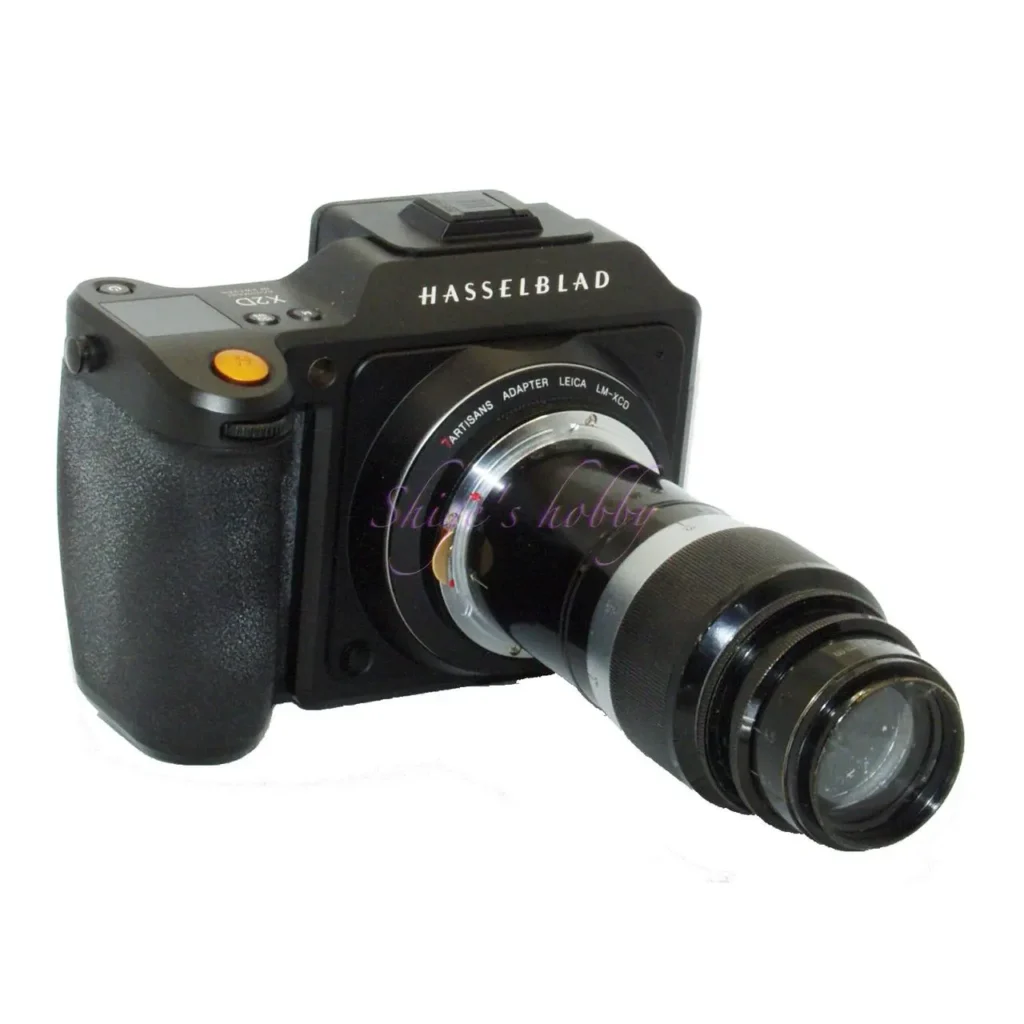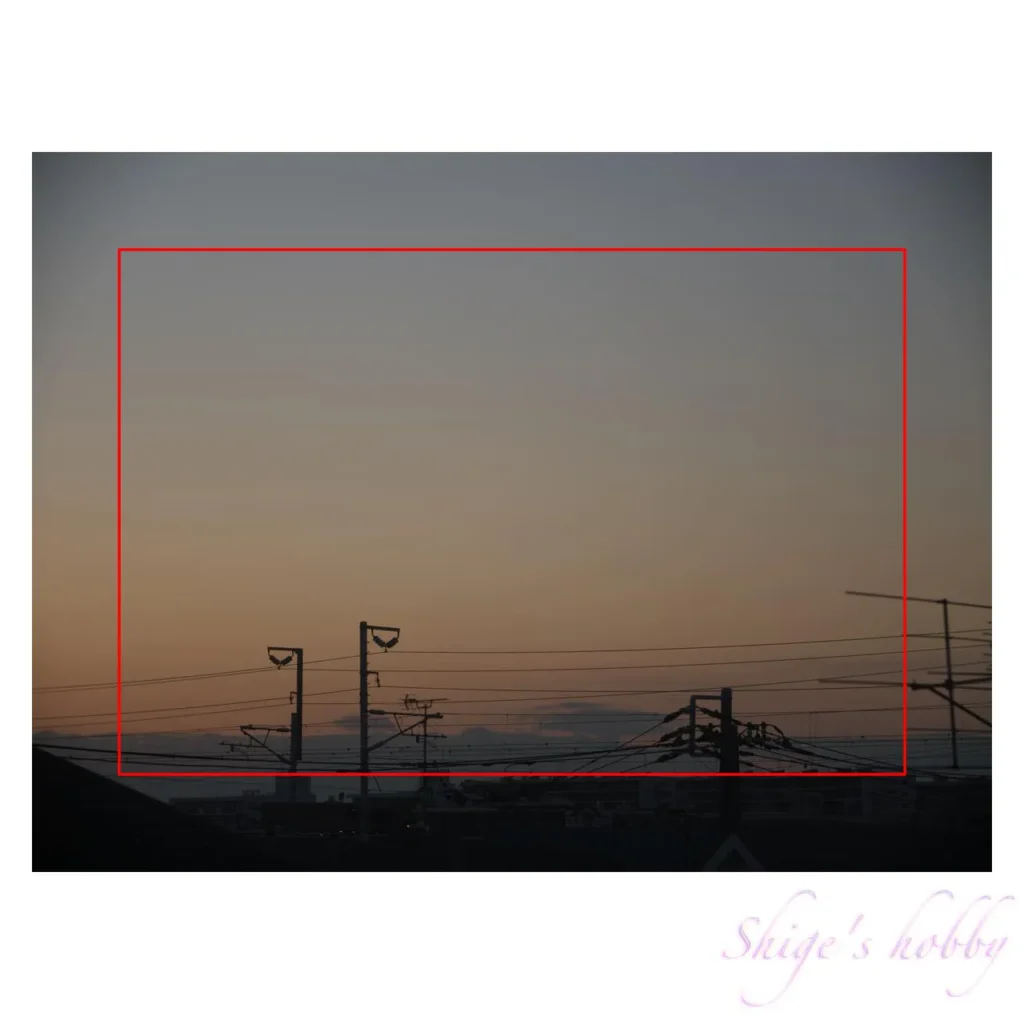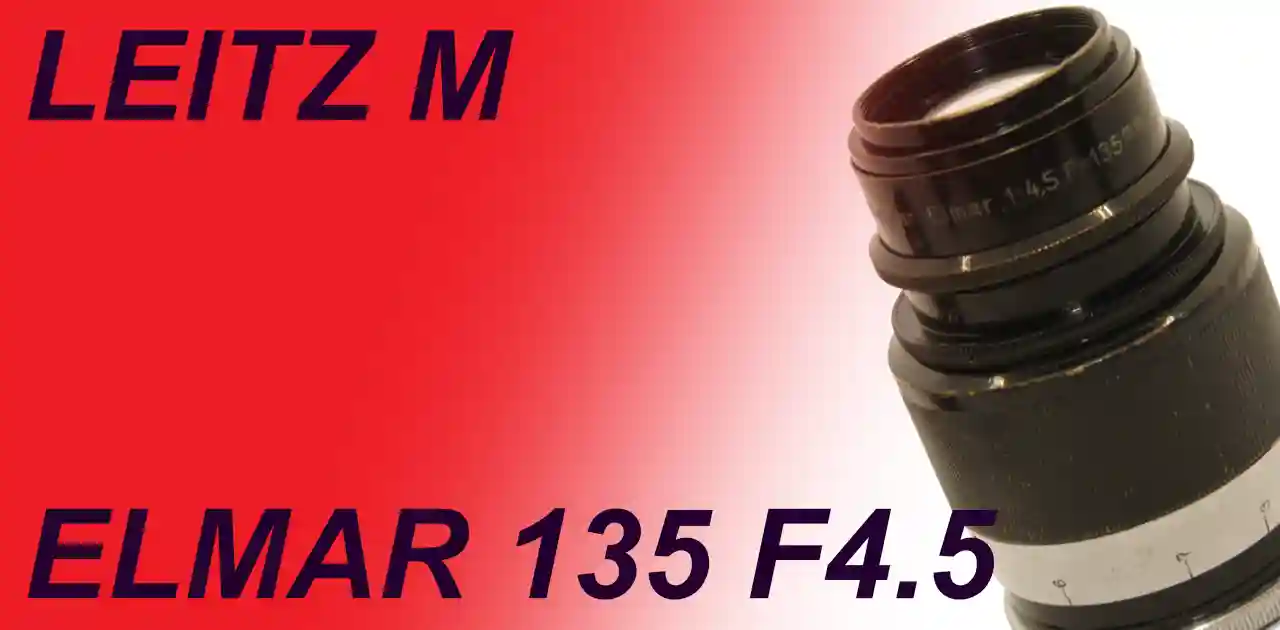A review and photo examples of the Elmar 135mm F4.5, released in 1931, used with the medium-format digital mirrorless camera HASSELBLAD X2D-100C.
- Please see the disclaimer regarding advertising here.
- Italicized links in the text are advertisement links that take you to other sites.
Table of contents
Gallery
The following cameras were used to take the sample photos:
- HASSELBLAD X2D-100C
- Click on the photo to enlarge
Review

1.Overview
The ELMAR M 13.5cm f/4.5 is a telephoto lens for the Leica L39 screw mount, released in 1931.
The main specifications are as follows, with details listed in the table.
- Aperture: 4.5
- Lens Construction: 3 groups, 4 elements
- Aperture Blades: 15
- Minimum Focus: 1.5m (Some older lenses do not support rangefinders)
- Rangefinder Coupling for Leica M Rangefinder Cameras: 1.5m
- Filter: A36 Cover
- Lens Color: Black
2.Usability
The ELMAR M 135mm F4.5 is an M-mount lens, but with a focal length of 135mm, it’s difficult to focus on the desired position using the double-image overlap feature on Leica M rangefinder cameras.
And while this lens’s head is removable, there’s no compatible VISOFLEX helicoid, making it difficult to use with an SLR camera.
You can screw the lens head onto a helicoid (ZOOAN) for the HEKTOR 135mm, but in that state the lens becomes a close-up lens that can’t focus at infinity. A shorter helicoid is probably needed, but I’ve never heard of such a product.
When I acquired this lens, I no longer had a digital rangefinder camera, so I didn’t use it with that. The sample images in this article were taken with the HASSELBLAD X2D-100C medium-format digital mirrorless camera.
The lens I own is cloudy, so significant flare occurs in backlit situations, resulting in dull images, as shown in the fourth photo in the gallery. This can be improved to some extent by increasing the contrast using image processing software.
The HASSELBLAD X2D-100C does not have a mechanical shutter on its camera body, so rolling distortion can occur with moving subjects. The Fujifilm GFX series, which uses the same medium format digital sensor, does have a mechanical shutter on its camera body, so this problem is eliminated and the lens has the advantage of being easier to handle.
Many long-focus lenses for the Leica M mount have wide image circles, so I was looking forward to testing this lens out, and the results showed that, as can be seen in the photo below, there is light falloff in the corners, and the image circle is thought to be slightly larger than that of 35mm film, shown in the red frame. Of course, this light falloff is not enough to be a problem in scenes where the subject is in the center.

3.Summary
In conclusion, to summarize the ELMAR-M 135mm f/4.5 is the oldest 135mm lens available exclusively for the M-mount.
As the oldest 135mm lens, its image quality is lacking. One of the reasons for this is the cloudiness of the lens.
Although it is inexpensive, its performance is not significantly different from other 135mm lenses, so it is not a lens that I would actively choose unless it is in very good condition.
Specifications, considerations, etc.
In addition to the four lenses listed below, other 135mm focal length lenses for the Leica M-mount include the Elmarit-M 135mm f/2.8 (1962) and the Apothelit-M 135mm f/3.4 (1998).
With the exception of the latest Apothelit-M, all of these lenses are sold at reasonable prices.
135mm lenses are difficult to use with rangefinder cameras due to issues with focusing accuracy, but with mirrorless cameras you can focus accurately using the electronic viewfinder, so if you come across one at a reasonable price, it might be worth trying.
In order to use the lens from infinity, the flange focal length of the camera is important, and the flange focal length for the Leica mount is shown below.
| Mount name | Frange back size | note |
| L mount | 20mm | For digital mirror less camera |
| M mount | 27.8mm | |
| L39 mount | 28.8mm | The L/M mount adapter is 1mm thick. |
| R mount | 47.4mm | R-M mount adapters are provided by various companies. |
| S mount | 53.3mm | Since I can’t find an official value for the flange back, I’ll write the value by subtracting the thickness of the S-C645 adapter, 10.7mm, from the CONTAX 645 mount’s 64mm. |
| VISO-M | 68.8mm | If you use 14127, it becomes R mount. |
| VISO-L39 | 91.1mm | If you use OUBIO/16466, it will be a VISO-M mount. |
There is no difference in performance between the focal lengths of 135mm and 13.5cm; it is just a difference in notation.
| Item | Tele Elmar | Elmar | Hektor | Elmar |
| focal length | 135(mm) | 135(mm) | 13.5(cm) | 13.5(cm) |
| Maximum aperture | 4 | 4 | 4.5 | 4.5 |
| Minimum aperture | 22 | 32 | 32 | 32 |
| Lens configuration | 5elements in 3groups | 4elements in 4groups | 4elements in 3groups | 4elements in 3groups |
| Minimum distance(m) | 1.5 (M-mount) | 1.5 (M-mount) | 1.5 (M-mount) | 1.5 (L39-mount) |
| Lens length(mm) | 63.6 (VISOFLEX-M) | 62.5 (VISOFLEX-L39) | 63.6 (VISOFLEX-L39) | 124 (L39) |
| Lens max diameter(mm) | 60 | 52 | 52 | 52 |
| Filter diameter(mm) | 39 | 39 | 39 | A36 |
| Lens Hood | IUFOO 12575 | IUFOO 12575 | IUFOO 12575 | ? |
| Weight(g) | 342 (VISOFLEX-M) | 165 (VISOFLEX-L39) | 247 (VISOFLEX-L39) | 517 (L39) |
| Production Numbers | 28,300- | 25,900- | 108,088 | 5,500- |
| Release date | 1964〜 | 1960-1963 | 1933-1960 | 1931-1937 |
Reference links
- TELE ELMAR 4/135・LEICA Wiki
- ELMAR 135mm F4・LEICA Wiki
- HEKTOR 13.5cm F4.5・LEICA Wiki
- ELMAR 13.5cm F4.5・LEICA Wiki
- LEICA ELMARIT M 135mm F2.8・Shige’s hobby
- LEICA ELMAR M 135mm F4・Shige’s hobby
- LEICA TELE ELMAR 135mm F4・Shige’s hobby
Affiliate links
- LEICA lens・Ads by Amazon
- Leica books・Ads by Amazon

Update history
- 2025.11.23



Be First to Comment